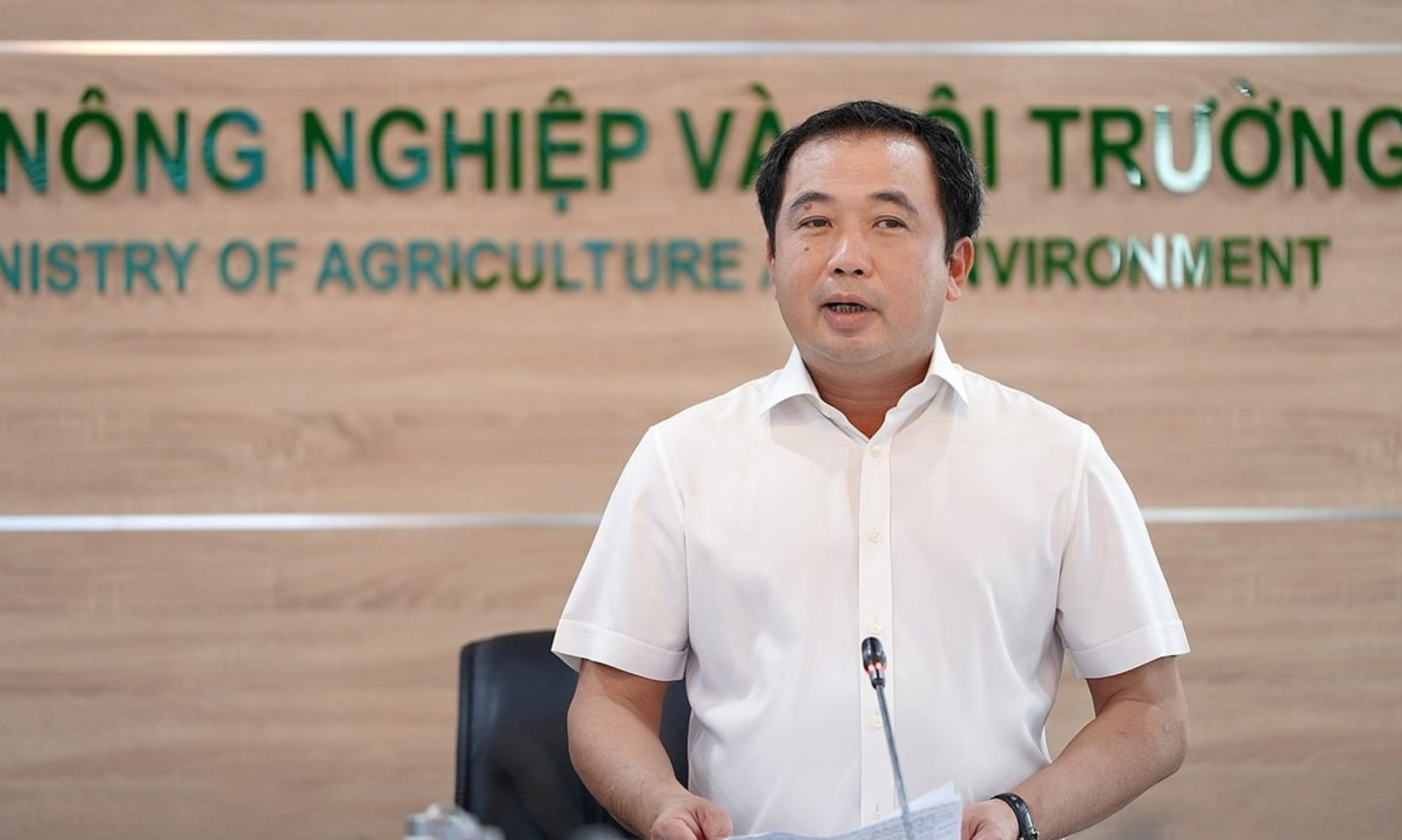On the morning of August 5, at an online conference with local authorities, project owners, and project management boards on the disbursement of public investment funds for the second half of 2025, Acting Minister of Agriculture and EnvironmentTran Duc Thang stressed: “Disbursing 100% of public investment capital is a top priority. No excuses will be accepted. If we act decisively and correctly, public investment will become a genuine driver of the economy.”
Proactively removing bottlenecks — no excuses, no waiting
According to reports from relevant units, the pace of disbursement remains slower than required, with many projects facing no procedural obstacles but still showing low disbursement rates. Some difficulties stem from site clearance, water resource licensing procedures, land-use adjustments, or the project owners’ execution capacity.
 Acting Minister Tran Duc Thang chairs an online conference with local authorities, project owners, and project management boards on the disbursement of public investment funds for the second half of 2025. Photo: Bao Thang.
Acting Minister Tran Duc Thang chairs an online conference with local authorities, project owners, and project management boards on the disbursement of public investment funds for the second half of 2025. Photo: Bao Thang. Responding to reports, the Acting Minister affirmed that delays primarily arise from organizational shortcomings and a lack of initiative within individual units. “For projects without obstacles, disbursement must be prioritized immediately-no blaming external factors. He emphasized that for projects with genuine difficulties, identify the issues clearly, propose concrete solutions, and do not let funds sit idle due to poor coordination,” he emphasized.
Second-half management plan: Clear tasks, clear responsibility, clear timelines
The Acting Minister assigned the Planning and Finance Department to work with relevant units to develop a detailed monthly disbursement plan for each project group, attaching specific accountability to each unit and project owner. Task forces led by deputy ministers will directly inspect and facilitate problem-solving on the ground.
The Ministry requires all units to accelerate the approval process for new projects, proactively review and adjust capital plans to match actual disbursement capacity, and avoid the situation of “funds waiting for projects.”
For projects facing water resources or land challenges, the Ministry will strengthen close coordination with localities to resolve issues and ensure construction progress promptly.
“Responsibility must be delegated. Provinces or units that fall behind will have to conduct personal accountability reviews. Localities failing to meet disbursement targets will receive official reminders, and in some cases, the provincial party secretary will be requested to intervene directly,” the Acting Minister stressed.
From 2026: Public investment planning must be grounded in reality
Looking ahead, the Acting Minister urged the entire sector to reform its approach in drafting the 2026–2030 medium-term public investment plan. Proposed projects must align with implementation capacity and be based on accurate cost estimates to avoid surplus capital caused by unrealistic pricing and norms.
The Ministry will also establish a transparent data system to monitor disbursement progress and hold each project owner and locality accountable, providing a factual basis for reallocating resources efficiently and effectively.
“No favoritism, no delays. Any province showing a lack of responsibility or any project owner lacking capacity will not be assigned future tasks,” the Acting Minister warned.
Turning public investment into a real economic engine
With the government calling for maximum disbursement to spur growth, the Acting Minister directed the agriculture and environment sector to treat this as its top priority for the remainder of the year.
“If we implement synchronized solutions and act decisively, achieving 100% disbursement of public investment capital will become a real driver for growth, infrastructure development, green agriculture, and digital transformation across the sector,” he affirmed.